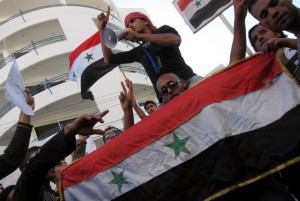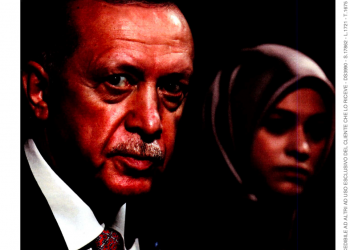 Since some weeks the international public opinion and the media are questioning themselves about the soft attitude held by the world powers towards the firm response of the government of Bashar al-Assad against the internal Syrian rebellions.
Since some weeks the international public opinion and the media are questioning themselves about the soft attitude held by the world powers towards the firm response of the government of Bashar al-Assad against the internal Syrian rebellions.
In order to understand the uniqueness of the situation in Syria it’s sufficient to rely on the geography. Just by observing a political map of the Middle East, in fact, we can see as a country bordering to the north by Turkey, to the west by Lebanon and Israel, Jordan to the south and east by Iraq, would represent an area of extreme sensitivity for the Middle East’s balances. And this, without mentioning the fact that the opposite island situated in the Mediterranean Sea is called Cyprus, which in 2012, will assume the Presidency of the Council of the European Union. Anyway a still divided Cyprus, about which the Turkish Foreign Minister, Ahmet Davutoglu, has already announced that in the absence of an agreement on the reunification of the island, Ankara could not acknowledge the role of President of the EU.
A minefield, therefore, whose further risks constitute a destabilization of the critical situation that has been created in an area of the world already shaken by the “Arab springs” and by the Libyan war.
Anyway, beyond the geopolitical considerations on the risk of undermining the stability of the Middle East, there are other factors that lead towards greater caution compared with the hasty (and in part interested) choice carried out by France and England against the regime of Mu’ammar Ghaddafi.
First of all there is the question of the military forces put forward. The evidence of the events shows, in fact, as the equipment and the armed forces employed in the attack on Libya have turned insufficient. If the Allies failed to bend the battered troops of the Rais, we can imagine which kind of mess would be created in Syria, a country that relies on a ten times higher, both for level of technology and for quantities, firepower compared to the firepower of Tripoli.
The troops of Assad are equipped with more than 450 fighter-bombers, and hundreds of anti-aircraft missiles batteries of Russian-made, as well as the formidable Scud missiles having a range of 750 km, capable of achieve the closest states, above all, Israel and Turkey. None of the neighbouring countries, however, would be disposed to grant the bases from which to start air-raids, neither, on the other hand, it’s would be feasible a land-attack, which has not been either taken into account by the UN resolution for Libya.
Moreover a motive of worry for the international observers is the renewed alliance with Russia too, which has a maritime base of strategic significance right in the Syrian port of Tartous. And without mention of Iran, whose government has close relations with Assad, and which finds itself already at the centre of international tensions for its nuclear program.
On the other hand the same Syrian rebels avoid to ask for outside military interventions, since having well clear the dramatic experience of the carpet-bombing for the civilian population, considering the occurrences in Libya.
The domino effect achieved by the explosion of North-African gunpowder, moving now towards Middle-East, is therefore involving one of the “historical” regimes of Baathism, in other words Syria.
Baathism is that ideological-political movement linked to the Arab Socialist Party, the Baath, founded in Damascus in the 40s, by the Syrian Orthodox Christian Michel Aflaq, whose meaning literally is “resurrection”.
Also adopted by the former regime of Saddam Hussein, is a concept that, in a sui generis religious context as the Syrian, sounds a bit like the secularized form of the homologous Ismaili notion of qiyama. We remember that Syria is, first of all – as it was Iraq – a secular country, where a minority Alawite sect, heretical compared to the Shiite Islam, governs a composite population, where Christians represent the 10% of the population (in this sense it’s understandable even a degree of caution hold by the Vatican to express judgments on the current situation in Syria).
The danger is that the eventual fall of the government headed by Bashar al-Assad, will create a vacuum of power that could be filled by one of the emerging and less desirable forces, at least for the countless Western admirers, anxious for a wind of change in the region.
A fundamentalist political force, that after the post-Tahrir Square movements in Egypt, is increasingly gaining ground and gaining credit as a possible alternative: the “Muslim Brotherhood”.

















